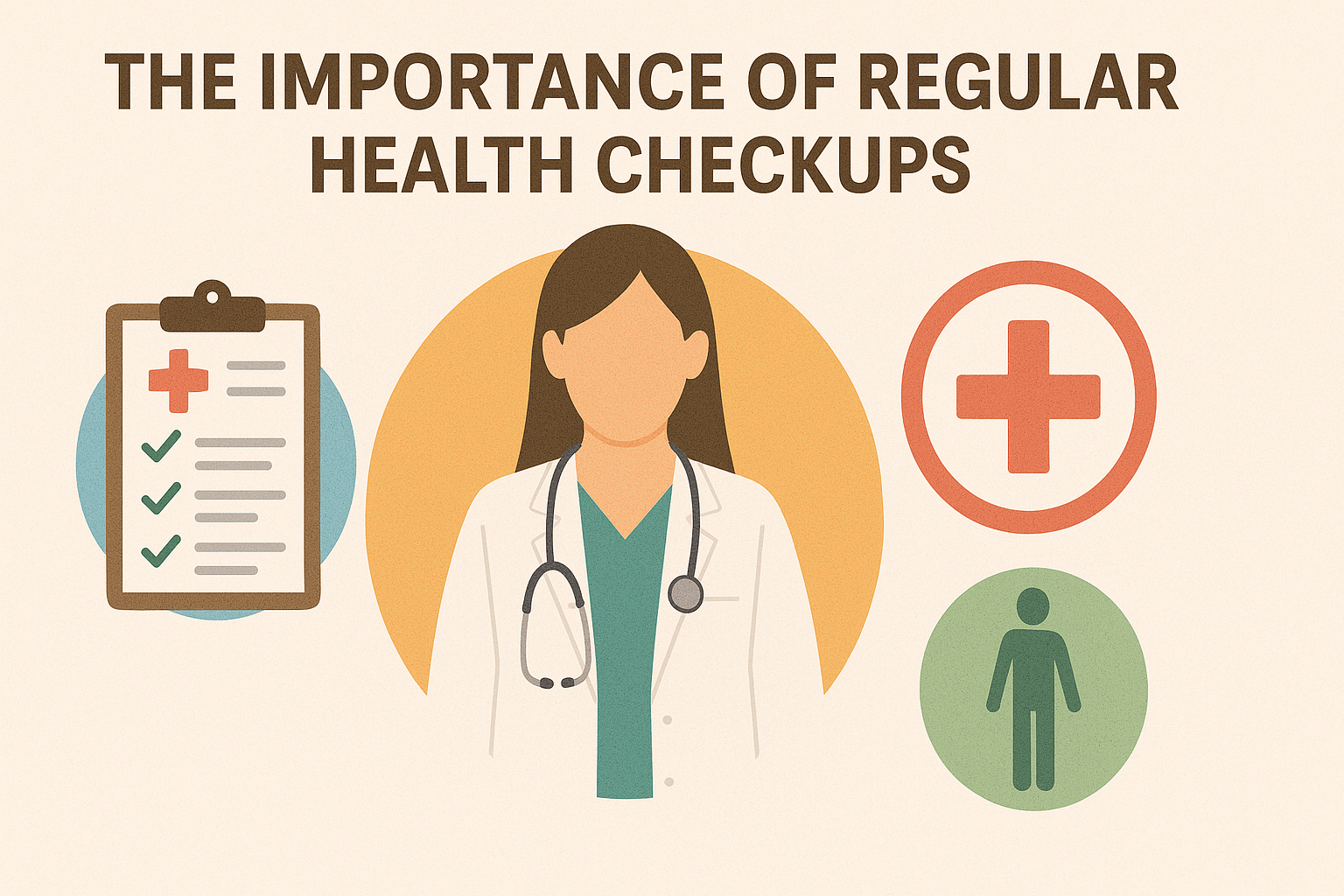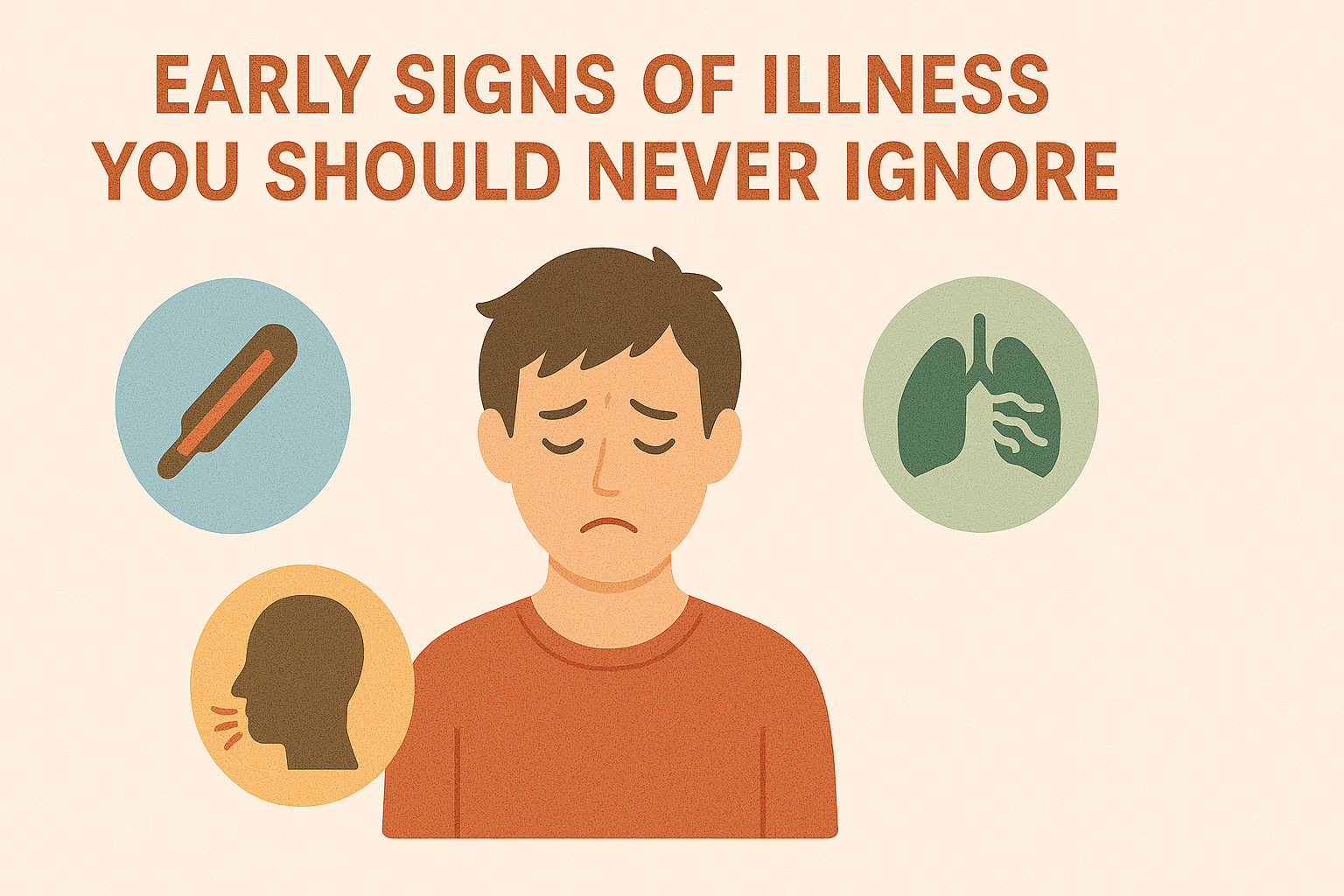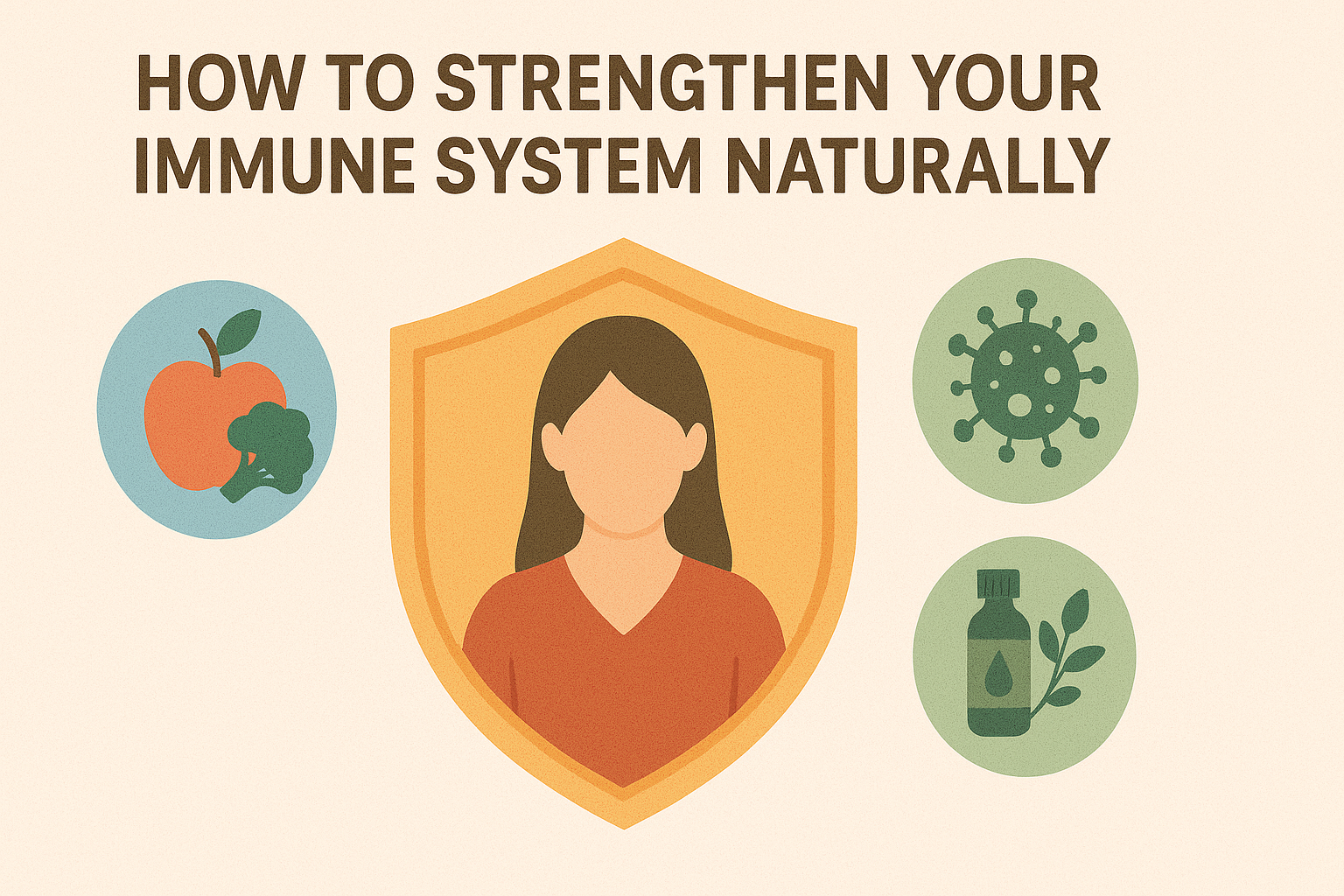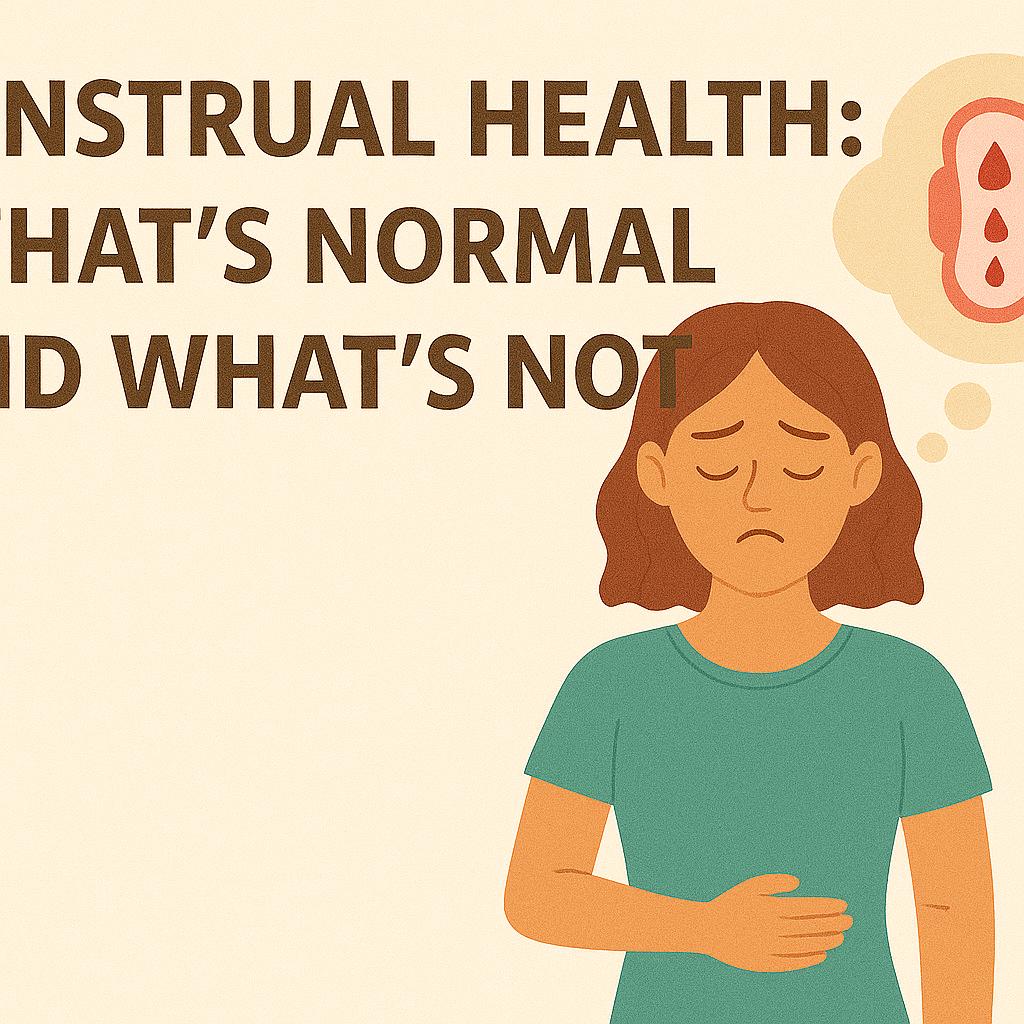
Introduction: Why Regular Health Checkups Matter
In today’s fast-paced life, health often takes a backseat until symptoms show up. But by then, it might be too late. The importance of regular health checkups lies in their ability to detect, prevent, and monitor potential health issues before they become serious.
These checkups help you take control of your health, save money in the long run, and give you peace of mind.
⚕️ 1. Early Detection of Health Problems
Most serious diseases — like diabetes, heart issues, or cancer — begin silently. Regular checkups can:
-
Detect illnesses in their early stages
-
Improve chances of successful treatment
-
Prevent complications later
💡 Example: Annual blood sugar tests can catch prediabetes before it develops into full-blown diabetes.
🛡️ 2. Preventive Care Saves Lives
Prevention is always better (and cheaper) than cure.
Routine tests and screenings help:
-
Identify risk factors (e.g., high cholesterol)
-
Start preventive care (diet, exercise, medication)
-
Delay or stop disease progression
✅ Vaccinations, BP checks, and regular blood work are essential tools for prevention.
💰 3. Saves Money on Long-Term Healthcare
Catching diseases early = lower treatment costs.
Delayed treatment of serious issues leads to:
-
Hospitalization
-
Expensive surgeries
-
Long-term medications
📉 Health checkups reduce both emotional and financial burdens.
🧠 4. Mental Health Monitoring
Good health isn’t just physical — it’s mental too.
Checkups now include:
-
Stress & anxiety assessments
-
Sleep pattern analysis
-
Emotional well-being reviews
✅ Regular health reviews can uncover signs of burnout or depression early.
🫀 5. Keeps Track of Your Body’s Vital Metrics
Routine tests track:
-
Blood pressure
-
Sugar & cholesterol levels
-
BMI & weight fluctuations
-
Liver & kidney function
This helps build your personal health history and spot patterns over time.
👨⚕️ 6. Builds a Relationship with Your Doctor
Regular visits foster trust with your healthcare provider, making it easier to:
-
Share symptoms
-
Ask questions
-
Receive personalized care
🩺 Your doctor becomes more familiar with your body and lifestyle — improving care quality.
🧓 7. Especially Important with Age
As you age, your risk of chronic diseases increases.
Health checkups help with:
-
Early arthritis detection
-
Eye & hearing tests
-
Bone density scans
-
Cancer screenings (breast, colon, prostate)
✅ Aging gracefully requires proactive monitoring.
📅 What to Include in a Routine Health Checkup
Depending on age and gender, your checkup may include:
-
Complete blood count (CBC)
-
Blood pressure & cholesterol
-
Blood sugar (fasting & HbA1c)
-
Liver and kidney function tests
-
Thyroid profile
-
ECG or chest X-ray
-
Pap smear/mammogram (for women)
-
PSA test (for men)
-
Dental and eye exam
🚦 How Often Should You Get a Checkup?
| Age Group | Frequency |
|---|---|
| 20s–30s | Every 2–3 years (if healthy) |
| 40s–50s | Every 1–2 years |
| 60+ | Annually or as advised |
Pro Tip: If you have a family history of heart disease, diabetes, or cancer, go for checkups more frequently.
🧾 Government Schemes That Offer Free/Low-Cost Checkups (India)
-
Ayushman Bharat Yojana
-
ESIC health benefits
-
Urban Health & Wellness Centers
These programs often cover preventive screenings and doctor visits at minimal or zero cost.
✅ Conclusion: Take Charge of Your Health Today
Understanding the importance of regular health checkups empowers you to live a longer, healthier, and stress-free life. It’s not a luxury — it’s a necessity. Don’t wait for symptoms to appear — act now, stay ahead of illness.
🗓️ Book your next checkup today. Your future self will thank you.





